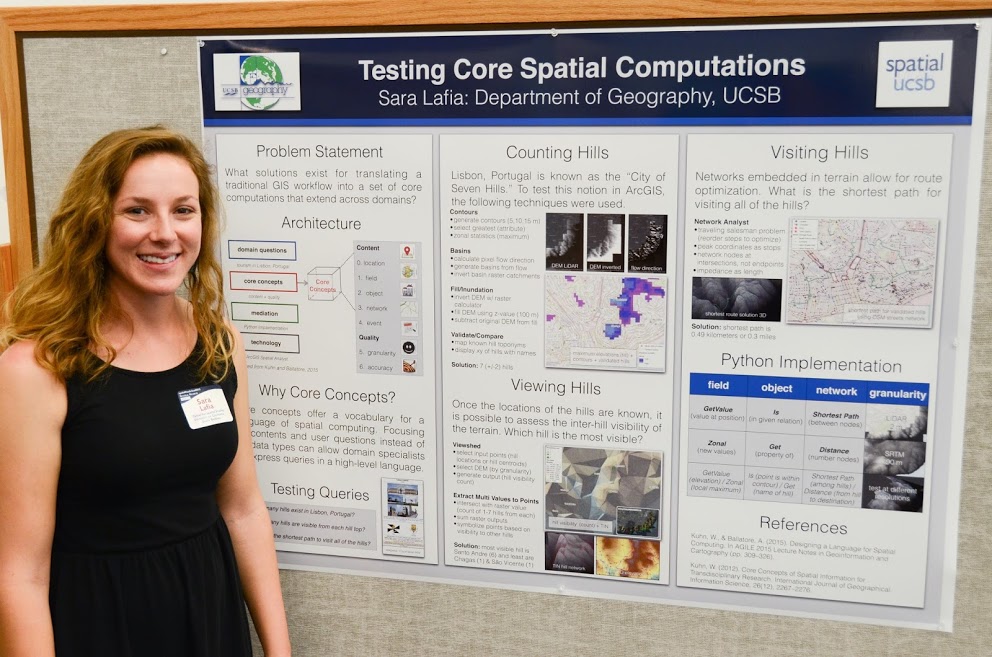The following is from an article posted on the spatial@ucsb web site regarding a poster exhibit and plenary session held June 2, 2015:
There is a spatial component at the core of all search. On one hand, search technologies rely on a spatial metaphor: We talk about going to our favorite websites, searching for fragments in an overwhelmingly large space of documents, images, and videos. On the other hand, geographic space is essential to index information, relying on the location of entities.
Extending our 2014 Specialist Meeting on Spatial Search, open to the local community and campus wide, this event will feature research posters from the local community. The agenda includes the Channel Islands Regional GIS Panel Discussion (9 a.m.) and two keynote speakers (11 a.m.), Pete Pirolli (Palo Alto Research Center) and Krzysztof Janowicz (Geography, UCSB). The Channel Islands Regional GIS (CIRGIS) Panel Discussion was titled “GIS in Regional Public Agencies,” and it was moderated by Zacharias Hunt (ZWorld GIS) and included David Endelman (City GIS Representative, City of Oxnard), Robert McDonald (Special District GIS Representative, Carpinteria Water District), and Carlos Wilderman (County GIS Representative, County of Ventura).
Peter Pirolli, Ph.D., Carnegie Mellon University Research Fellow, Interactive Intelligence Area, Palo Alto Research Center: “Seeking Answers, Making Sense, Changing Lifestyles: Scientific and Engineering Models for Human-Information Interaction.” In this presentation, Pirolli will discuss a series of increasingly complex human-information problems that have been addressed over the years by increasingly complex models of human psychology and behavior. The problems and contexts include information foraging, intelligence analysis, learning technical domains, and mastering changes in one’s own lifestyle. The models have been used to come to a deeper understanding of the cognitive ecology of human-information interaction in these contexts, to develop new user modeling techniques, with the aim of supporting the development of new human-information interaction techniques.
Bio: Peter Pirolli is a Research Fellow in the Interactive Intelligence Area at the Palo Alto Research Center (PARC), where he has been pursuing studies of human information interaction since 1991. Prior to joining PARC, he was an Associate Professor in the School of Education at UC Berkeley. Pirolli received his doctorate in cognitive psychology from Carnegie Mellon University in 1985. He is an elected Fellow of the American Association for the Advancement of Science, the Association for Psychological Science, the American Psychological Association, the National Academy of Education, and the Association for Computing Machinery SIGCHI Academy. He is the author of Information Foraging Theory: Adaptive Interaction with Information.
Krzysztof Janowicz, Ph.D., Institute for Geoinformatics (IFGI), University of Münster, Assistant Professor, Department of Geography, University of California, Santa Barbara: “Vague Cognitive Regions: Data-Synthesis-Driven Perspective.” The concepts of cognitive regions and places are notoriously difficult to manage in geographic information science. They arise from the complex interaction of individuals, society, and the environment, their exact delineation is challenging as borders are vague, membership of places within a region varies non-monotonically, and homogeneity and regularity between raters cannot be assumed. In a recent study, Montello and colleagues have devised a novel grid-based task in which participants rate the membership of individual cells to a given region. The authors used the regions of “northern” and “southern” California for their experiment on thematically influenced regions. They concluded that membership is about attitude, not just latitude. This presentation will reproduce their study by approaching it from a computational fourth paradigm perspective, i.e., by the synthesis of heterogeneous data provided by various sources. The talk will focus on differences in study and task design, advantages and limitations of both approaches, and discuss the relation between conventional human participants tests and the increasingly popular data-synthesis-driven research designs in GIScience.
Bio: Krzysztof Janowicz is an assistant professor for Geographic Information Science and Geoinformatics at the Department of Geography. Before joining UCSB, he was an assistant professor at the GeoVISTA Center of the Pennsylvania State University and a postdoctoral researcher at the University of Munster, Germany. Janowicz is the program chair of UCSB’s cognitive science emphasis.
Editor’s note: Many thanks to alumnus Antonio Medrano (PhD 2014) for bringing this material to our attention and for supplying photos of the event – all photos taken have been posted on our Event Photos page.

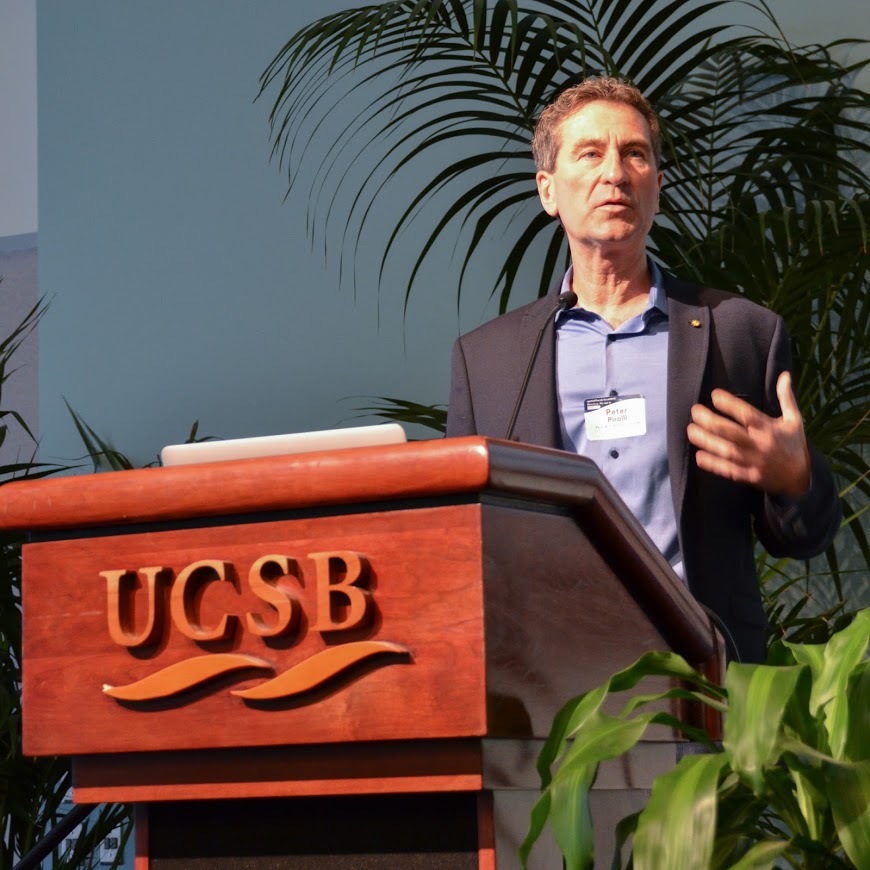
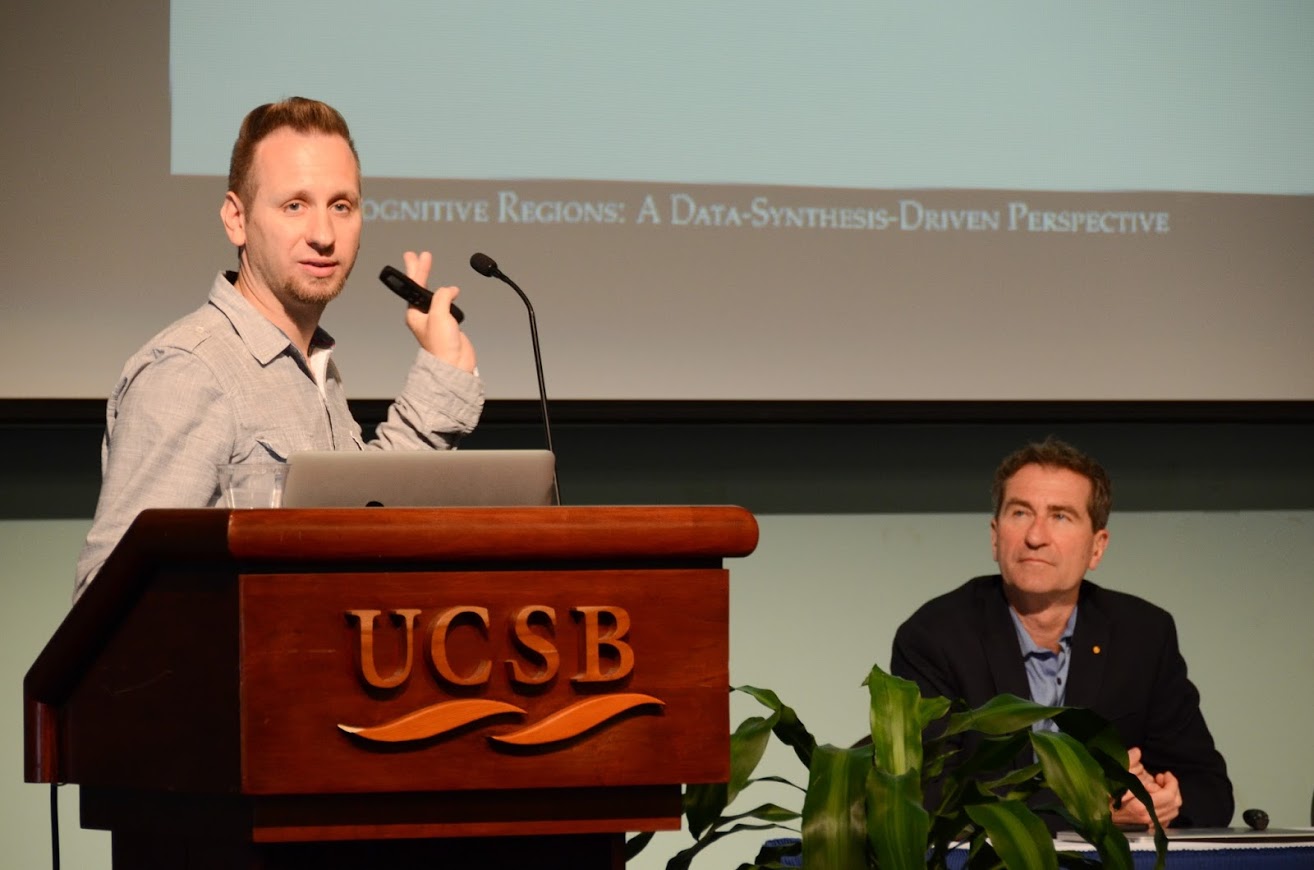
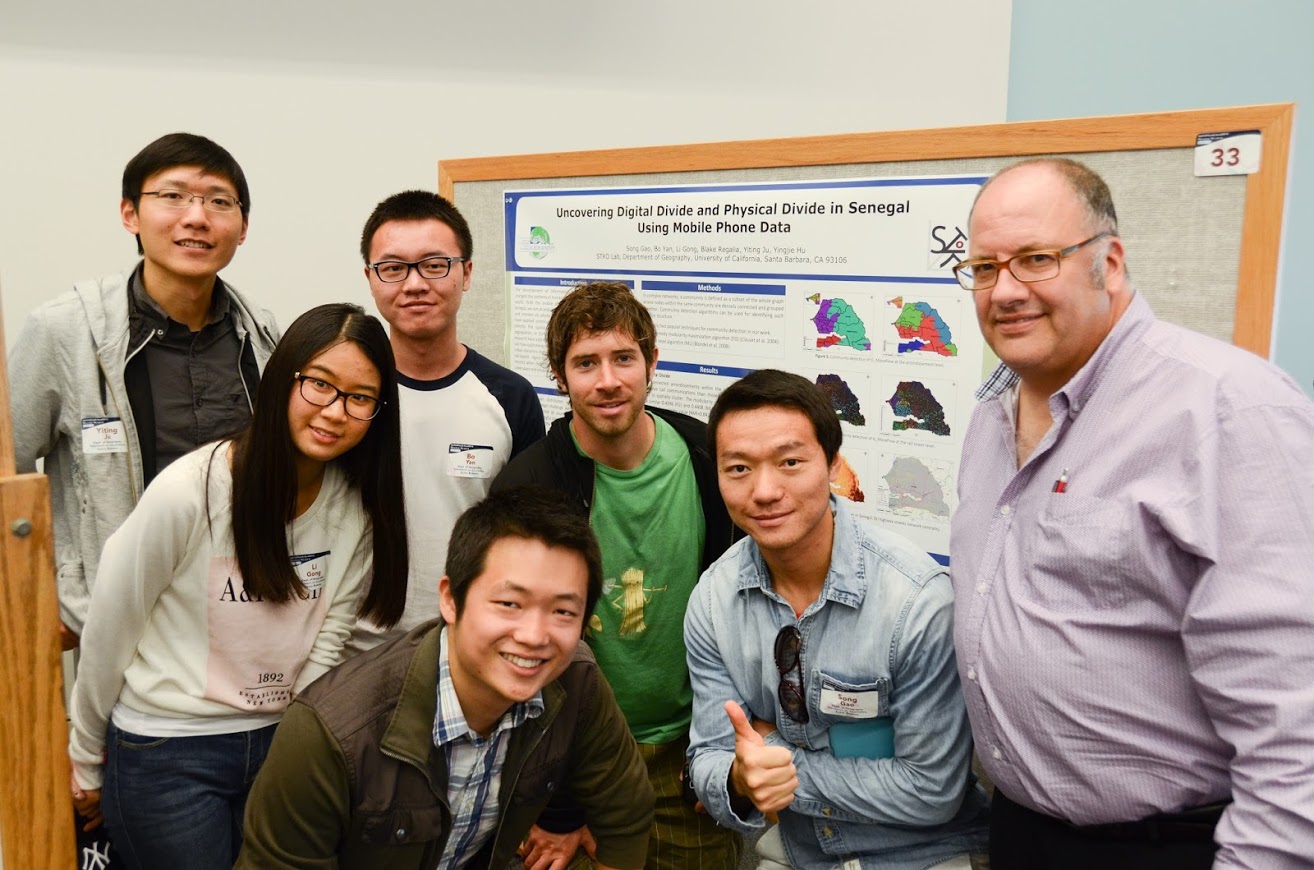
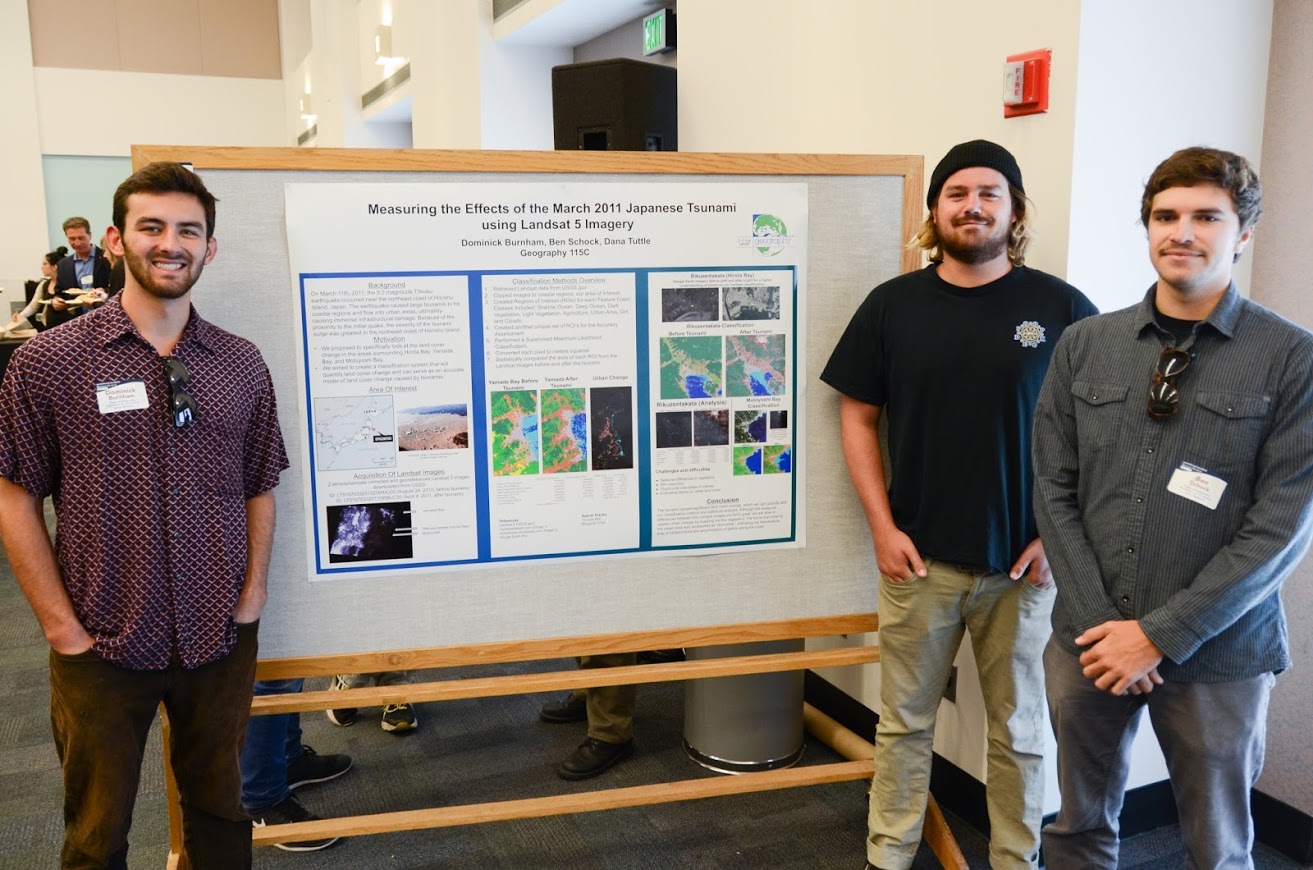

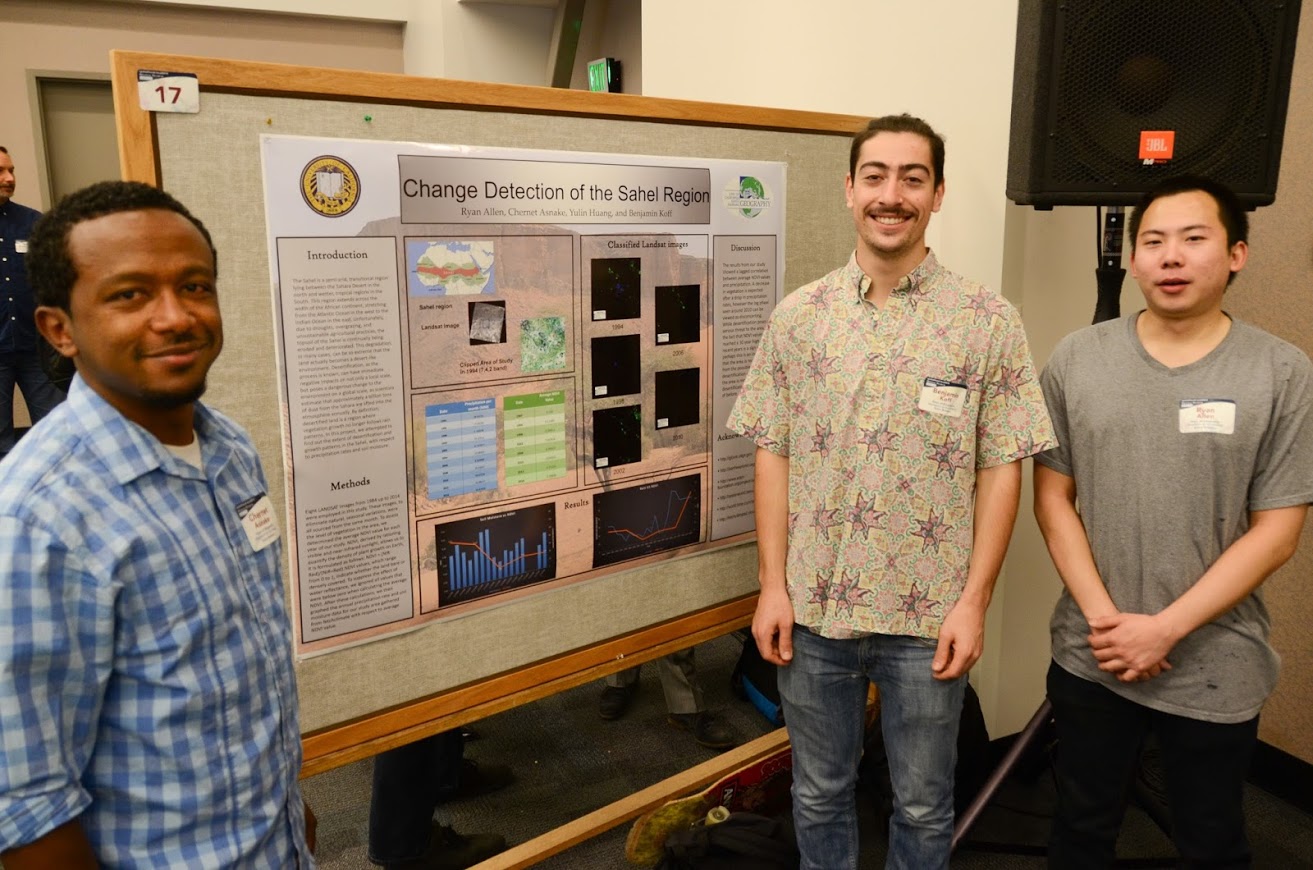
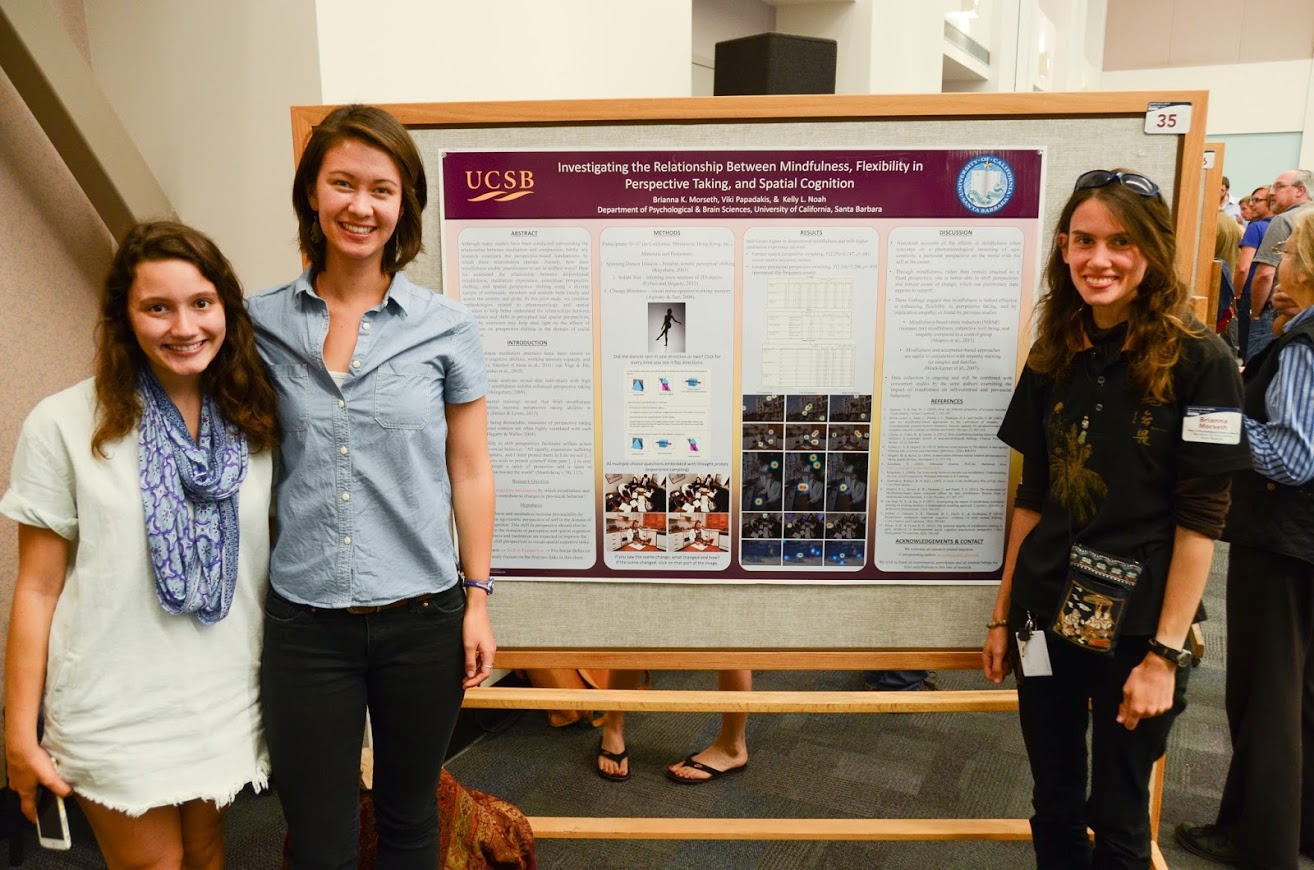
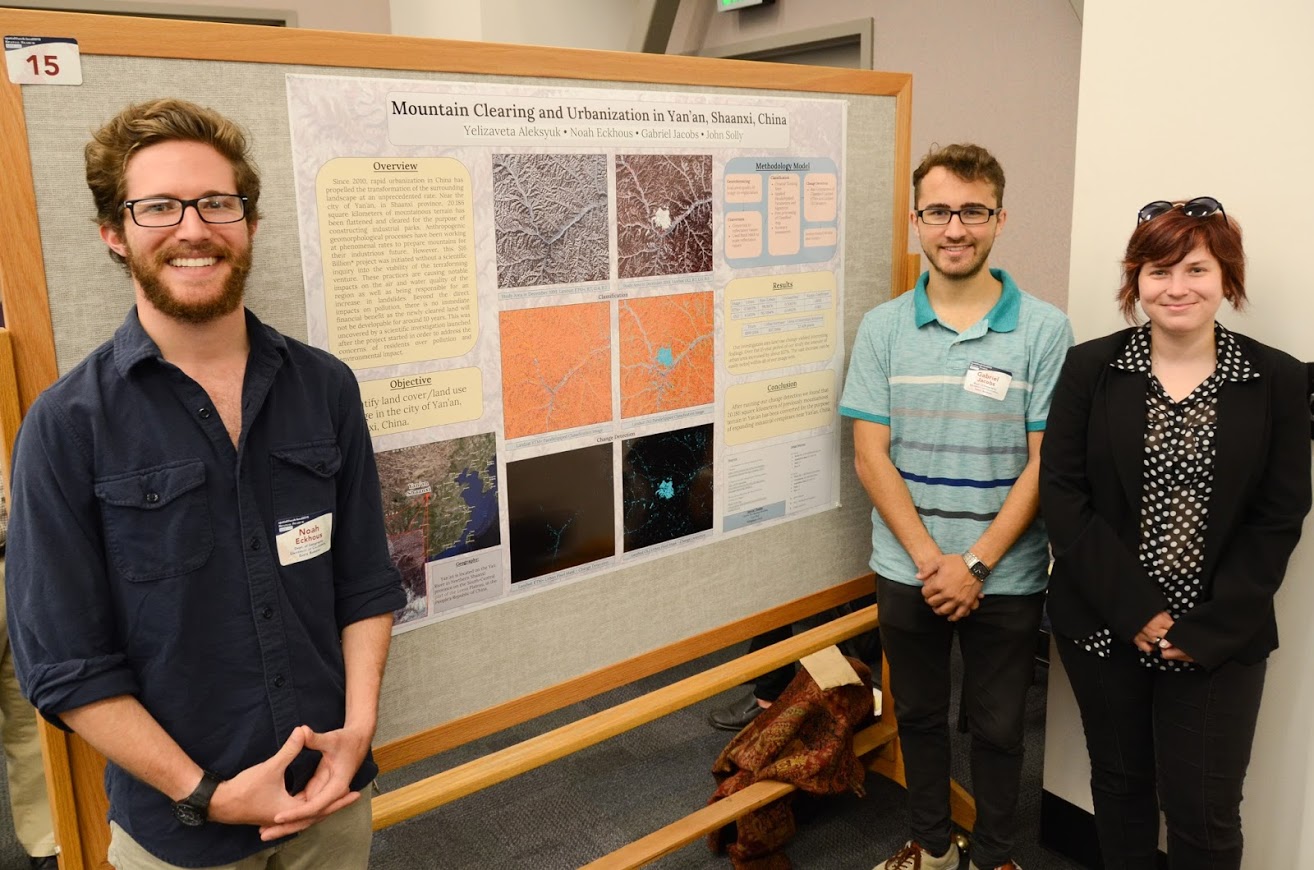

.jpg)
.jpg)
